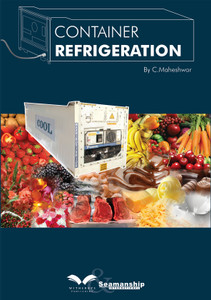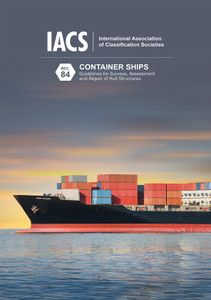
This publication is a companion to the CTU Code and provides additional practical guidance and background information.
This companion publication to the CTU Code provides practical guidance and background information, including:
- Consequences of improper packing procedures
- typical documents related to transport
- CTU types
- species of concern regarding recontamination
- quick lashing guides
- intermodal load distribution
- manual handling
- transport of perishable cargo
- CTU seals
- testing CTUs for hazardous gases.
Foreword
The Group of Experts that finalized the IMO/ILO/UNECE Code of Practice for Packing of Cargo Transport Units (CTU Code) agreed not to include, in the CTU Code, draft material that provided further practical guidance and background information; it was too detailed to include in the Code without impairing its readability. It was suggested that this informative material could be further developed by one of the three competent bodies, in this case, the IMO Sub-Committee on Carriage of Cargoes and Containers.
Consequently, the Sub-Committee on Carriage of Cargoes and Containers, at its first session (8 to 12 September 2014), finalized the draft Informative material related to the CTU Code, which was subsequently approved by the Maritime Safety Committee, at its ninety?fourth session (17 to 21 November 2014) and issued as MSC.1/Circ.1498.
Although the CTU Code references the informative material as IM1 to IM10, the informative material does not constitute part of the CTU Code and, therefore, it need not be endorsed by the governing bodies of the UNECE and the ILO.
Foreword
IM1 Consequences of improper packing procedures
IM2 Typical documents related to transport
IM3 Cargo transport unit (CTU) types
IM4 Species of concern regarding recontamination
IM5 Quick lashing guide
IM6 Intermodal load distribution
IM7 Manual handling
IM8 Transport of perishable cargo
IM9 CTU seals
IM10 Testing CTUs for hazardous gases
A??s a specialized agency of the United Nations, IMO is the global standard-setting authority for the safety, security and environmental performance of international shipping. Its main role is to create a regulatory framework for the shipping industry that is fair and effective, universally adopted and universally implemented. ?
In other words, its role is to create a level playing-field so that ship operators cannot address their financial issues by simply cutting corners and compromising on safety, security and environmental performance. This approach also encourages innovation and efficiency.
Shipping is a truly international industry, and it can only operate effectively if the regulations and standards are themselves agreed, adopted and implemented on an international basis. And IMO is the forum at which this process takes place.
- Number of Pages:
- 154
- ISBN:
- 9789280116304
- Published Date:
- June 2016
- Book Height:
- 250 mm
- Book Width:
- 210 mm
- Author:
IMO
- Binding Format:
- Paperback
- Preview:
- Yes
- Publication Date:
- June 2016






